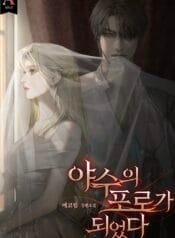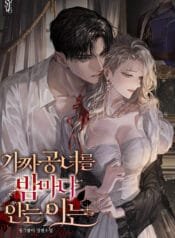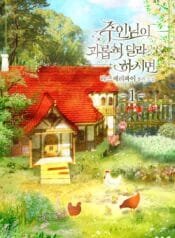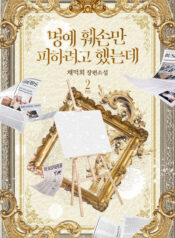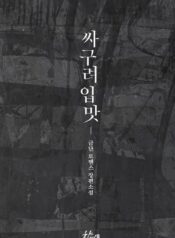I was sure I had put a pack inside, but it had disappeared. Stressed out from the past few days, I felt as though I might truly lose my mind. The urge to lash out, to scream and rage, was almost unbearable.
In the end, I walked for hours without a cigarette.
When I finally reached the village, I bought a pack and lit one up straight away.
Ah, yes! Relief! My hands had been trembling from withdrawal, but after just one drag, the ache subsided.
I soon boarded a tram and made my way back to my shabby apartment.
I had only been away for a day, yet my mailbox was full. There were letters from my brothers and a telegram.
A telegram…
Holding the bundle in my shaking hands, I climbed the stairs. The moment I opened the door and stepped inside, my knees gave way.
[Sergei Antonovna Siklenkov. Tuesday, December 18, 1943. Deceased. Pneumonia.]
I stared at the machine-typed words for a long time.
Seryozha had gone to war for the State—faithful, unwavering, like a chained hound obeying its master’s every command. He had bled for Elkinsky, surrendered everything he was, and in the end… even the smallest shred of honor was denied him. What remained of him was not pride, not remembrance, but a pitiful weight of guilt. My brother—once full of life—reduced to nothing more than a lackey of a rotten, filthy regime.
How cruel. How unbearably cruel. His death was treated as if it meant nothing—less than a dog’s life, less than the careless swat of a fly. That’s what all his sacrifice amounted to. Nothing.
No tears came. My chest ached with grief, yet all that escaped me was a hollow, broken laugh.
And now… Seryozha was gone. Torn from this world as if he had never been. Just like Mother. Just like Father. Each of them vanished, leaving me here alone, clutching only emptiness where their love should have been.
✹✹ ✹✹ ✹✹ ✹✹ ✹✹
I uncorked a bottle of vodka and drank.
From the radio came a military song with lyrics by Mikhalkov:
“The holy land awaits the homeland’s victory. Soldiers, rise! Where are your Ilya and Dobrynya? Motherland calls her sons.”
In a fit of rage, I grabbed the radio off the table and threw it across the room.
I had waited over a year for it, cherishing it all this time, but none of that mattered now.
“We are all sons of the great nation. We are all bound by the legacy of our ancestors.”
Even when I was thrown to the floor, the music continued to play. My rage boiled up uncontrollably.
I stomped on the radio, kicked it, and threw it around. Finally, the battery popped out and the music stopped.
I slumped over the table, panting hard. I took another swig of vodka. Then another. And another. Before long, I had drunk more than half of the one-litre bottle.
The house was deathly silent. Even the wind had long since ceased. I put the broken radio back on the table, put in the battery and turned the dial.
This time, a march spilled out, but it sounded more like a funeral dirge.
At the very least, they could have sent a telegram—just a single line, a single word—telling me that my brother was ill. Then I would have run to him. I would have been there, holding his hand, whispering his name, letting him know he was not alone. But instead, they let him slip away in silence, forsaken in that wretched place. My Seryozha… left to die without me.
I staggered outside. The snow that had accumulated on the streets had turned to slush beneath my feet. Humming a tune, I wandered aimlessly through the city until I stopped in front of a bicycle shop.
I had been waiting for two years to buy a bike to make commuting easier. I had long since grown used to the fact that I could never buy what I wanted straight away, but now impatience was getting the better of me.
“Could I buy a bicycle?”
“You’ll have to wait at least a year, miss. The line is too long.”
I took out all the money I had and placed it on the counter. Suddenly, the wait was over.
I bought the bicycle, hopped on, pulled down the earflaps of my ushanka, and rode off through the streets. I pedalled hard, barely feeling the strain.
As I approached a corner, I squeezed the brakes to slow down. I had forgotten that the street was covered in snow and ice.
The bike was going too fast and failed to stop in time. I missed the turn, slammed into a utility pole and was thrown clear.
The fallen bicycle’s wheel spun frantically and loudly.
I was thrown into the middle of the road and lost consciousness.
✹✹ ✹✹ ✹✹ ✹✹ ✹✹
“Are you all right, miss?”
The sound of voices roused me. I opened my eyes to find that someone had dragged me to the sidewalk.
“…Yes, I’m fine.”
Despite my whole body aching and throbbing, I forced myself to stand up straight. My legs gave way beneath me, so I leaned against the pole for support. As the alcohol wore off, the pain hit me like a ton of bricks, making me feel as though my body was about to shatter.
My head pounded. I reflexively reached up to press my forehead and screamed. My right arm wouldn’t lift.
When I rolled up my sleeve, I saw that it was swollen, red, puffy and throbbing.
Surely it wasn’t broken? If it was, I wouldn’t be able to work at the garage. That would be disastrous.
But worrying about it now would solve nothing. First, I dragged the fallen bicycle upright. With my left arm, I pushed it along as I staggered homeward.
By the time I finally made it back to my apartment, I searched my pockets—no key. It must have flown out during the accident earlier.
“Oh, God… please.”
I squeezed my eyes shut, exhaling a heavy sigh.
“Damn it…”
There was nothing left but curses.
✹✹ ✹✹ ✹✹ ✹✹ ✹✹
I returned to the street where the accident had happened, my battered body dragging behind me. With my torch on, I scoured every inch of the area for over an hour. But the key was nowhere to be found.
Eventually, I slumped to the ground and lit a cigarette.
Without the key, I wouldn’t be able to get into my own home. I refused to go to Jürgen.
With my face and body covered in bruises, I sat there smoking when I saw a car pull over at the roadside. Two soldiers got out and crouched before me.
“Can we borrow a cigarette, comrade?”
I pulled two from my pocket and handed them over. The soldiers lit up, standing around me as their smoke mingled with mine. One of them, a Tatar, looked down at me and asked:
“What’s your name?”
“Svyeta.”
“Light… It’s a good name.”
I fiddled absently with the rose-patterned wool scarf around my neck, laughing faintly.
“Would you like to come somewhere warm? To our apartment—bright and warm, like you, Svyeta.”
Men often approached me with such offers when I was standing alone on the street. I had never accepted them before. But tonight, I was desperate for the warmth of someone’s embrace. If I lost myself in someone else’s arms, perhaps I could forget the grief of losing my brother, just as I had done with Jürgen.
The tall, red-haired soldier pressed again.
“Come to our apartment. There’s a bed, a stove, hot tea…”
“And vodka?”
“Of course there’s vodka.”
I smiled at his reply. I truly meant to follow them. Whoever I went with, it could hardly be worse than this.
But then I shook my head and let out a hollow laugh.
“In truth, I have a fiancé.”
I held up the ring on my finger, but they didn’t flinch at all.
The world had changed. The war had caused every value to collapse. It wasn’t only the city that had been reduced to blackened ruins; tradition, justice and faith had burned away, too.
I pushed myself to my feet and walked off with difficulty. The men showed little disappointment, simply going on to seek another companion for the night.
I stood at the roadside and waved. At such a late hour, taxis were scarce, but fortunately, I managed to flag one down. Before getting in, I brushed the snow from my boots and shook it from my coat and hat.
With no other option, I climbed into the taxi and told the driver to take me to Jürgen’s house.
✹✹ ✹✹ ✹✹ ✹✹ ✹✹
“Jurgen! Jurgen!!”
I pressed the doorbell again and again, but no one came to answer. It seemed Jurgen had yet to return home.
Was I supposed to wait outside in this cold until he came?
Exhaustion gnawed through me, and at last I lost my temper, kicking the front door hard.
“Huh?”
Much to my surprise, the door swung open. It hadn’t been locked. For someone who always locked even the interior doors, this was unusual.
Had he simply not heard the doorbell? But no matter where I looked, Jürgen was nowhere to be found.
I dragged myself to his room and collapsed onto the floor. I didn’t have the strength to change into slippers, so I tracked melting snow from my boots across the floor, leaving damp patches behind.
I sat dazed for a long while, still wearing my coat. At last, I wandered into the bathroom. The dirty snow from my boots left dark smudges on the white tiles.
Looking in the mirror, I saw it: an ugly black-and-blue bruise spread across my right cheek.
I undressed and turned on the hot water.
My body was covered in bruises, and my right arm felt broken. Nevertheless, I scrubbed myself clean with painstaking care. The stinging pain made me wince, but I endured it.
I didn’t bother drying off or putting on clothes—I collapsed straight onto Jurgen’s bed.
‘Is this really what it means to live?’
The question barely lingered. Before long, sleep claimed me.

